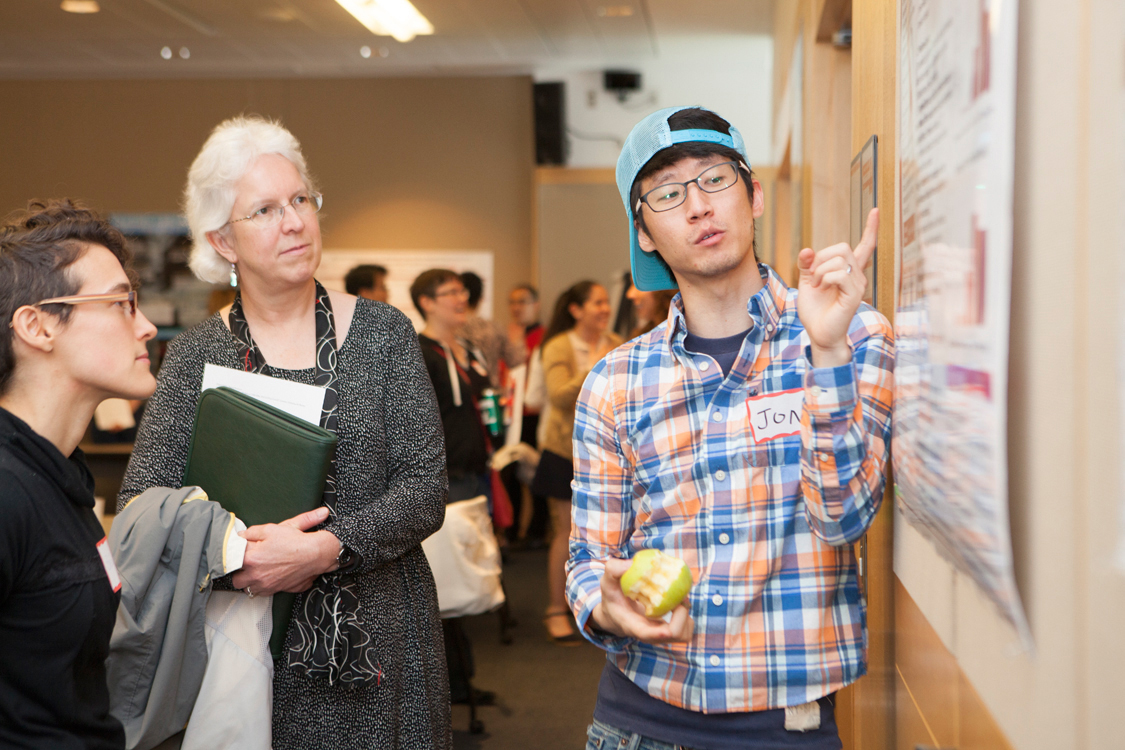CIRTL prepares future faculty members at Cornell

Housed in the Graduate School, the Cornell branch of the Center for the Integration of Research, Teaching and Learning (CU-CIRTL) develops and coordinates programs to prepare graduate students and postdocs for future faculty careers.
Established in 2003 with support from the National Science Foundation, the CIRTL Network, which Cornell joined in 2011, aims to improve undergraduate education by training aspiring faculty in teaching and research mentorship strategies shown to be effective for a diverse student body.
In response to increased demand at Cornell and nationally for future faculty development, the network of CIRTL-participating universities has more than doubled in size from 21 to 46 institutions, with the acceptance of 25 new research universities in February 2016.
The 46 CIRTL Network universities produce one-third of U.S. doctoral degrees in science, technology, engineering and mathematics, providing an opportunity for CIRTL programs to shape a significant fraction of new faculty in these fields.
“We’re proud to be a part of this expanding network of universities committed to improving future faculty preparation,” said Barbara Knuth, senior vice provost and dean of the Graduate School, and a member of CIRTL’s national leadership team.
As CIRTL members, participating schools establish local learning communities of graduate students and postdocs. Students interested in the professoriate can also learn firsthand about other institutions and participate in online professional development activities to become better scholars, researchers, mentors and educators.
Nirav Patel, a doctoral student in the field of natural resources, received a travel grant to visit fellow CIRTL institution Northwestern University, where he presented his dissertation research. He also met with faculty and learned how to reach more students by incorporating spatial intelligence and learning into his research on renewable energy education.
“The CIRTL resources that allow such attendance between campuses are crucial for an interdisciplinary engagement in research and teaching for emergent fields such as mine,” said Patel.
The expanded CIRTL Network will provide even more opportunities for students and postdocs. Rebecca Dyer, a postdoctoral associate in psychology, participated in a virtual practicum on annotating scientific literature for use in the classroom in fall 2015. For her, the many CIRTL programs on campus and online have been opportunities to “develop not only as a scientist and researcher, but also as an educator.”
“The CIRTL Network is a forum that brings together some of the brightest and most engaged faculty and faculty-in-training,” said Colleen McLinn, director for Cornell’s CIRTL programs. “The scholars who volunteer to teach networkwide courses and host exchange visitors really model what a meaningful and productive academic career can look like.”
CIRTL professional development and community-building opportunities help students like Chantal Koechli, a doctoral student in the field of microbiology who has participated in CIRTL programming on classroom diversity and scholarship of teaching and learning. “As universities are beginning to realize that Ph.D. training must include development for careers other than research-focused professorships, it is imperative that there be support for programs like CIRTL,” Koechli said.
Media Contact
Get Cornell news delivered right to your inbox.
Subscribe